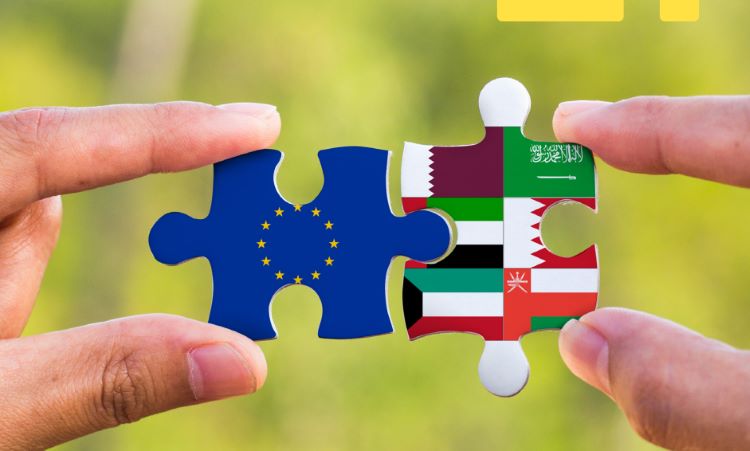The Diplomat
The Exporters and Investors Club has recommended to the Spanish Government the deployment of new strategies to strengthen economic relations with the countries of the Gulf Cooperation Council (GCC) in order to attract more investment from their sovereign wealth funds.
This is the subject of a monograph entitled The economic and business relations of the European Union with the countries of the Gulf Cooperation Council and their implications for Spain, which was presented yesterday at the headquarters of Casa Árabe in Madrid, in the presence of its director, Irene Lozano, and the director general of Economic Diplomacy of the Ministry of Foreign Affairs, Ana Esmeralda Martínez. The conference was also attended by Antonio Bonet, president of the Exporters Club; Rachid Berd, director of the Haramain-Saudi Arabia Project of Consultrans; Enrique Fanjul, of Iberglobal; and Luis Mateos Paramio, deputy director general of Bilateral Economic Relations and Economic Diplomacy of the Ministry of Foreign Affairs.
The document, authored by Tomás Guerrero Blanco, director of the Halal Trade and Marketing Centre of the Government of Dubai, and Gonzalo Rodríguez Marín, director of the Saudi-Spanish Center for Islamic Economics and Finance at IE University, states that “Spain has before it an opportunity to open a new era in its relations with the sovereign wealth funds of the GCC countries”, comprising Saudi Arabia, the United Arab Emirates, Qatar, Kuwait, Oman and Bahrain.
In his presentation, Tomás Guerrero recalled that the attraction of foreign direct investment was key to overcoming the economic crisis of 2008, and in particular the investments of the GCC sovereign wealth funds, which also contributed to increasing the confidence of international investors in the Spanish economy. For this reason, he urged the Government to favor the attraction of investments from these GCC funds, taking into account the current context of crisis, with “commercial tensions and a rise of protectionism that are reordering the way of understanding the world”.
According to the study, there are currently 95 sovereign wealth funds in the world, designed to manage revenues from the exploitation and commercialization of their abundant natural resources, with assets under management exceeding nine trillion dollars. Fifteen of these funds belong to the member countries of the Gulf Cooperation Council, which manage assets worth three trillion dollars, placing some of them among the largest and most sophisticated in the world.
Spain is currently among the main recipients of investment from these funds, with investments in assets, companies and their subsidiaries abroad worth around 19 billion euros. Even in the worst pandemic period, that between 2019 and 2020, our country attracted sovereign investments worth 1.3 billion euros, 3% of the total investments made by sovereign wealth funds at that time, when FDI flows fell by more than 42% worldwide. In this way, Spain was in the top 10 of the countries that received the most investment from these vehicles during this period.
According to Tomás Guerrero, Spain offers GCC countries investment opportunities in mature sectors such as real estate or energy, but also in developing sectors such as sustainable mobility, circular economy or digitalization. “The interest of these funds in our country responds to different logics,” he said. “By investing in Spain, they invest in the European Union, a stable, secure market made up of nearly 500 million consumers,” he continued.
“Moreover, in the case of Spain, they gain access to a solid, resilient economy with good growth prospects, with leading companies in strategic sectors and a leading position in international markets such as Latin America and Africa,” he added. The GCC sovereign wealth funds, he said, “are looking above all for profitability, access to new markets and the possibility of attracting leading companies to their respective countries to help them diversify their productive fabric”.







